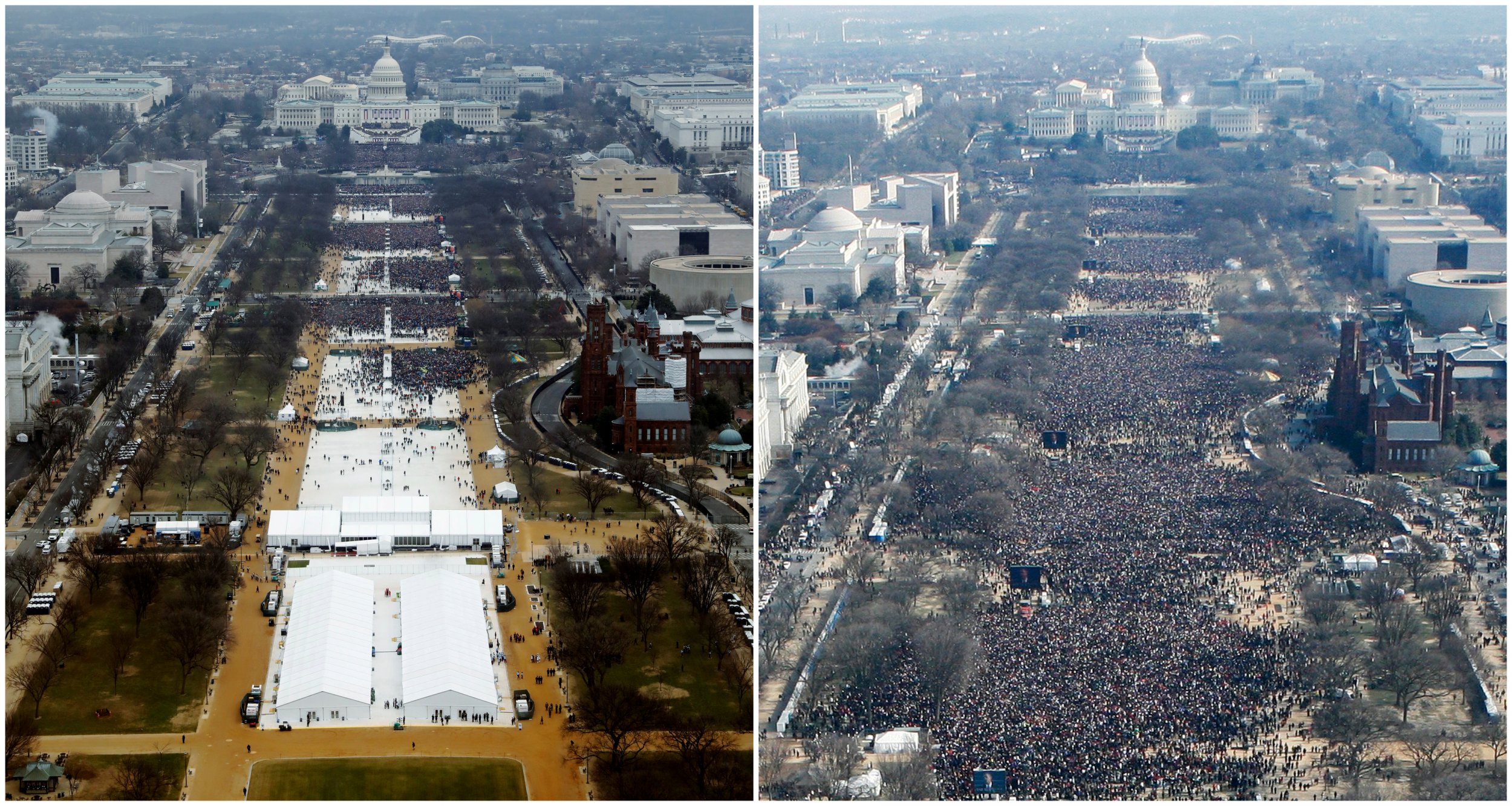
This article first appeared on RobertReich.org.
Donald Trump is such a consummate liar that in the coming days and years our democracy will depend more than ever on the independent press to find the truth, report it and hold Trump accountable.
But Trump's strategy is to denigrate and disparage the press in the public's mind, and to convince the public that the press is engaged in a conspiracy against him. And he wants to use his tweets, rallies and videos to make himself the only credible source of public information on what is happening and what he's doing.
It is the two-step strategy of despots. And it's already begun. It was officially launched the first full day of the Trump administration.
Step 1 : Disparage the press and lie about them
During a televised speech at CIA headquarters, Trump declared that he has a "running war" with the news media, and described reporters as "the most dishonest human beings on earth."
Trump then issued a stream of lies about what the press had reported.
Some lies were seemingly small. For example, Trump claimed that the crowd for his swearing-in stretched down the National Mall to the Washington Monument and totaled more than 1 million people, and accused the media of falsely underreporting the number. "It's a lie," he said. "We caught [the media]. We caught them in a beauty."
Trump is wrong. Even independent observers reported that attendance was sparse, and far smaller than the outpouring of people who attended the first Obama inauguration.
More importantly, Trump told CIA employees that their agency has been losing the battle against the Islamic State and other terrorist groups. This assertion runs counter to every intelligence report that has been publicly issued over the last six months.
Trump insisted that he has always valued the CIA. "They sort of made it sound like I had a feud with the intelligence community," Trump said, continuing to criticize the press for its "dishonest" reporting.
In fact, Trump has repeatedly vilified the CIA and the entire intelligence community for what he claimed were politically charged conclusions regarding Russia's intervention in the 2016 election.
At a January 11 news conference, Trump even accused intelligence officials of being behind a "Nazi-like smear campaign" against him. And in his tweets, he put quotation marks around the word "intelligence" when referring to the CIA and other intelligence agencies.
The weekend before his inauguration, he even attacked CIA Director John Brennan (who resigned at the conclusion of President Obama's term), suggesting that he was "the leaker of fake news."
In his talk at the CIA, Trump also claimed, as he has previously, that the United States bungled its exit from Iraq by not taking Iraq's oil. "If we kept the oil, we wouldn't have had ISIS in the first place," Trump said, asserting that this is how the terrorist group had made its money.
Rubbish. As has been well established and as the media has fully reported, taking Iraq's oil would have violated international law (both the 1 949 Geneva Convention and the 1907 Hague Convention).
Step 2: Threaten to circumvent the press and take the "truth" directly to the people.
At Trump Press Secretary Sean Spicer's first televised news conference, Spicer castigated the press for its "dishonest" and "shameful" reporting, lied about Inauguration Day events and numbers and took no questions. (When confronted with Spicer's outright lies, Kellyanne Conway, counselor to the president, told NBC that Spicer had merely given "alternative facts.")
Then Spicer issued a dire warning: "The American people deserve better," he said. "As long as [Trump] serves as the messenger for this incredible movement, he will take his message directly to the American people."
We're not talking FDR-like "fireside chats" here. Trump's tweets have already been firestorms of invectives directed at critics—some of whom have been threatened by Trump followers stirred up by his tweets.
And CEOs pray that their companies won't become targets, because stock prices of companies that he's already vilified have dropped immediately after his diatribes.
Trump and his advisors—among them Steven Bannon, formerly of "Breitbart News," as well as Spicer and others—understand that if a significant portion of the public trusts Trump's own words more than they do the words of the media, Trump can get away with saying—and doing—whatever he wants.
When that happens, our democracy ends.
Robert Reich is the chancellor's professor of public policy at the University of California, Berkeley, and a senior fellow at the Blum Center for Developing Economies. He served as secretary of labor in the Clinton administration, and Time magazine named him one of the 10 most effective Cabinet secretaries of the 20th century. He has written 14 books, including the best sellers Aftershock, The Work of Nations,Beyond Outrage and, most recently, Saving Capitalism. He is also a founding editor of The American Prospect magazine, chairman of Common Cause, a member of the American Academy of Arts and Sciences and cocreator of the award-winning documentary Inequality for All.
Uncommon Knowledge
Newsweek is committed to challenging conventional wisdom and finding connections in the search for common ground.
Newsweek is committed to challenging conventional wisdom and finding connections in the search for common ground.
About the writer
To read how Newsweek uses AI as a newsroom tool, Click here.








